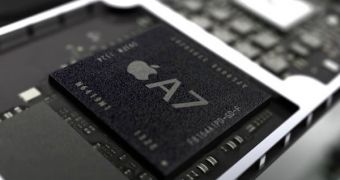After telling developers to code iOS 7-compatible apps by February “or else,” Apple is now insisting that application sellers code binaries that support both 64-bit and 32-bit titles, for compatibility reasons.
It’s no mystery that there are countless 32-bit devices out there still using iOS 6, as well as the new iOS 7, making it imperative that developers sell compatible apps to sustain the App Store’s longevity, preventing Google Play from taking the crown.
Apple’s latest message to developers reads:
“Create a single app binary that supports 64-bit on iOS 7, as well as 32-bit on iOS 7 and iOS 6, so your apps can easily remain compatible as they take advantage of the power of iPhone 5s, iPad Air, and iPad mini.”
The Cupertino giant then directs developers to the iOS Developer Library where they can sift through the 64-Bit Transition Guide for Cocoa Touch (Apple’s proprietary programming language).
There, Apple explains that, “When desktop operating systems transitioned from 32-bit to 64-bit addressing, 64-bit apps were critical to the OS transition.”
The situation is now being replicated on the mobile front, as the latest iPhones and iPads are now using 64-bit hardware.
“Now, iOS is getting a similar desktop-class architecture. Starting with iOS 7 and the A7 processor, you can build iOS apps that take advantage of 64-bit processors,” reads the guide.
“An app that supports 64-bit processing almost always gains improved performance when compared with a 32-bit app running on the same device,” the company adds.
But many customers still own 32-bit devices, such as the iPhone 4, iPhone 4S, iPhone 5, and all iPads except the Air and the second-generation iPad mini (with Retina display). Which means 32-bit apps are still a top priority.

 14 DAY TRIAL //
14 DAY TRIAL //